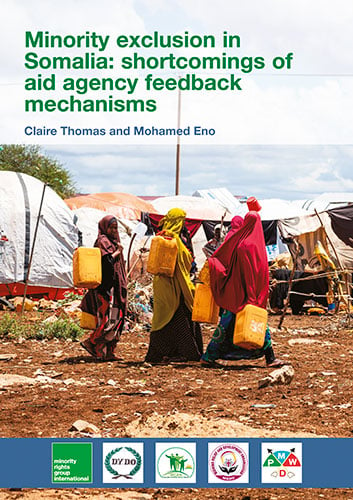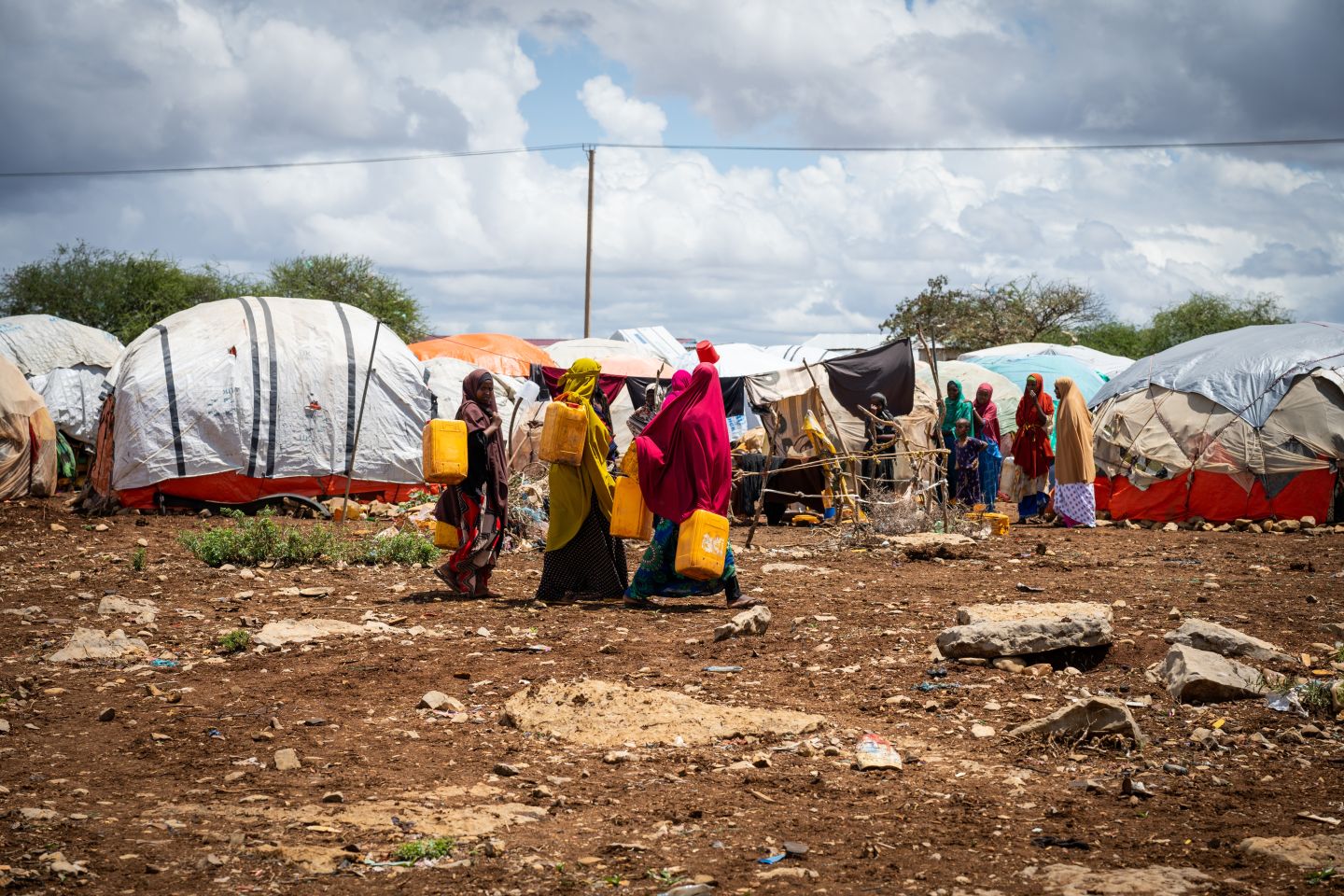
Minority exclusion in Somalia: shortcomings of aid agency feedback mechanisms
Most aid agencies operating in Somalia have established complaints and feedback mechanisms (CFMs) in an effort to address longstanding concerns about the effectiveness of their efforts. However, Somali minority communities are less likely to be aware of the existence of these CFMs, and less likely to have registered a complaint using them. These were the findings of an initial study conducted in 2021 by MRG and partners of Swiss funded programmes.
This new follow up study confirms that CFM phone lines are not reliably answered, raising critical questions about the quality of CFMs and whether they are indeed fit for purpose. Of great concern the study found that women reported personal knowledge of threats or reprisals occurring after complaints were attempted or made with 25 per cent of women reporting personal knowledge of this happening.
In addition, there were instances where complaints were made to seek the support of aid providers, or where challenges made to decisions to exclude minorities were found not to be appropriately escalated within organizations. Where there was a response, these were handled in questionable ways. The localised politicisation of aid, with local authority oversight and decision making about who was to be included on beneficiary lists, resulted in minority exclusion, which was neither challenged nor rectified, even after complaints were made to aid organizations.
This study was designed to offer recommendations for ways to ensure that minority groups are better aware of existing CFMs – even where they are not on target lists for services or support. The recommendations are also designed to encourage a greater level of trust and confidence by minority groups to use CFMs. This study is based on data obtained from 34 focus group discussions (FGDs), involving 374 participants (198 women) from Bantu, Eyle, Gabooye, Tumaal and Yibir minority communities. This was complemented by a process of tracking or accompaniment of a number of complaints as test cases.
Confirming the results of the 2021 Minority Inclusion Learning Review, the FGDs revealed that around half of those in minority communities were either entirely unaware of feedback mechanisms or did not know how they can be accessed.

